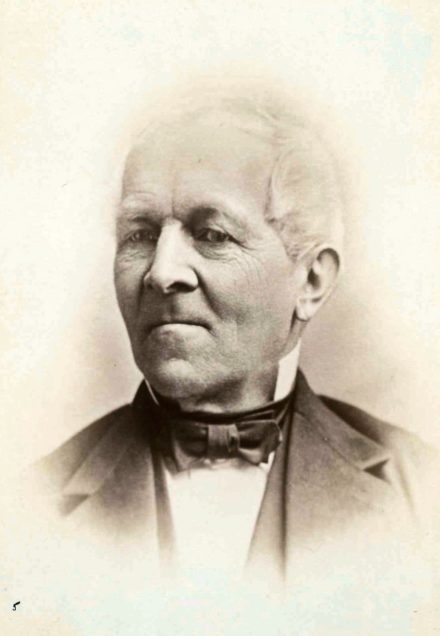
James Henry
October 13, 1809 - June 14, 1895James Henry was born October 13, 1809 in Philadelphia to John Joseph and Mary Rebecca Henry, the first-born in the fourth generation of the famous Pennsylvania rifle-making family. In 1821, at the age of 12, James and his parents relocated to the Henry homestead, Boulton Plantation, on Bushkill Creek in Northampton County where he lived the remainder of his life.
A life spent in this setting, as well as time spent in Europe studying forestry principals in France and Germany in the mid-1850s sowed in him a passion for conservation and forestry. He personally invested heavily in the long-term education of Pennsylvania’s – and America’s – youth on conservation issues by lobbying the American Forestry Congress in Boston and the Forestry Division of the US Department of Agriculture and other agencies for the establishment of schools of forestry in all the state colleges and universities in Pennsylvania, and across the nation.
With a mind and a heart toward conservation, James Henry saw the desperate need to reforest the state’s mountainsides and waterways, which had been utterly denuded in the lumbering heyday of the 19th century, resulting in tremendous environmental impacts due to uncontrolled stormwater erosion and stream sedimentation.
He knew the onus for restoring the state’s forests and water quality rested with the Commonwealth itself.
In 1883, James engaged in correspondence with Northampton County’s Senator Jeremiah Hess regarding the degraded state of forests and water resources throughout much of Pennsylvania.
Senator Hess expressed great interest in preserving and renewing the state’s forests and waterways, and suggested that James, with his grasp of the situation, understanding of ecological principles and formidable writing skills, draft a bill, which the senator would sponsor in Harrisburg, for the establishment of a state nursery for the purposes of affording free distribution of trees among Pennsylvanians for planting along the state’s watercourses and springs.
James Henry immediately went to work on drafting just such a bill, and over the course of a year, wrote several versions before completing a final draft of proposed legislation for Senator Hess to sponsor in the state assembly.
During the second session after its presentation, the bill passed the State Senate with but one dissenting vote. And during the same 1884-’85 session, it received an affirmative vote in the State House of Representatives, and passed the second reading of that body.
Unfortunately, the bill failed to pass its third and final consideration of the state House by a vote of 90 to 58. Had it passed that reading, James Henry’s bill would have become Pennsylvania’s first public law addressing the protection of waterways by creating a state nursery system for the planting of riparian forest buffers.
It wasn’t until 1897— twelve years after Henry’s bill was defeated and two years after his death– that the Pennsylvania state legislature would authorize a Forestry Commission and Forest Reserve System to rehabilitate the state’s forest and water resources through the creation of a forest nursery system, as was James Henry’s vision.
Now deceased over 120 years, James Henry is one of Pennsylvania’s unsung pioneer conservation heroes, and among the very first Pennsylvanians to make original and progressive contributions to the protection and enhancement of the aquatic resources of the state.
